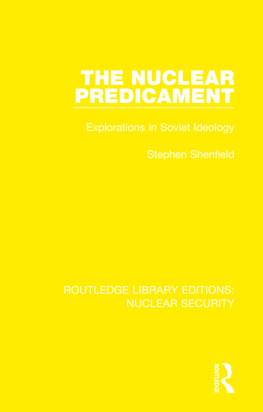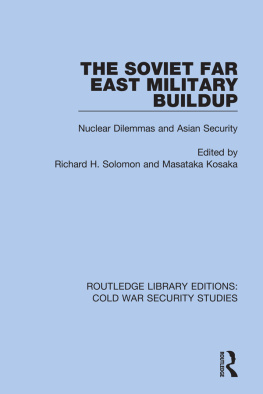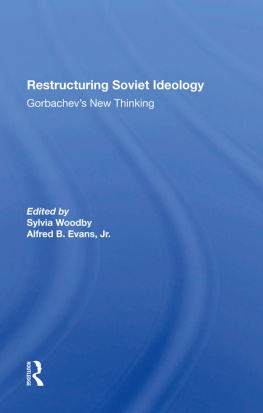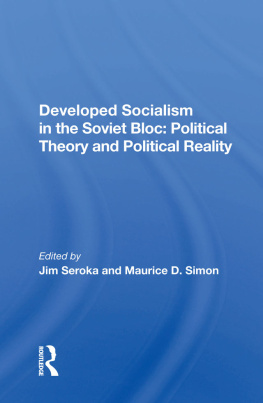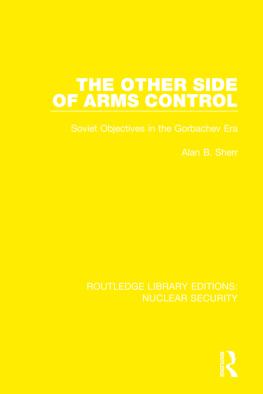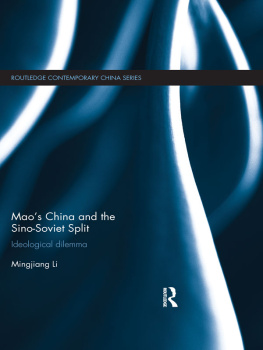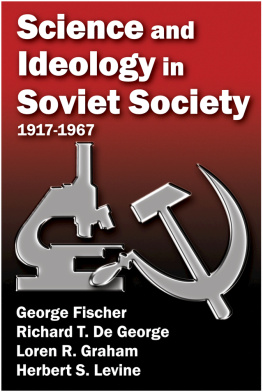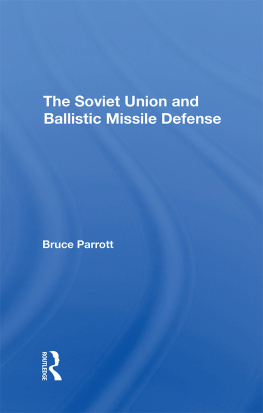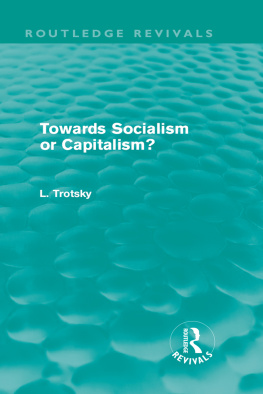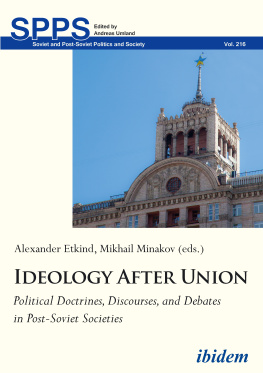First published in 1987 by Routledge & Kegan Paul Ltd
This edition first published in 2021
by Routledge
2 Park Square, Milton Park, Abingdon, Oxon OX14 4RN
and by Routledge
52 Vanderbilt Avenue, New York, NY 10017
Routledge is an imprint of the Taylor & Francis Group, an informa business
1987 Royal Institute of International Affairs
All rights reserved. No part of this book may be reprinted or reproduced or utilised in any form or by any electronic, mechanical, or other means, now known or hereafter invented, including photocopying and recording, or in any information storage or retrieval system, without permission in writing from the publishers.
Trademark notice: Product or corporate names may be trademarks or registered trademarks, and are used only for identification and explanation without intent to infringe.
British Library Cataloguing in Publication Data
A catalogue record for this book is available from the British Library
ISBN: 978-0-367-50682-7 (Set)
ISBN: 978-1-00-309763-1 (Set) (ebk)
ISBN: 978-0-367-54325-9 (Volume 30) (hbk)
ISBN: 978-1-00-308875-2 (Volume 30) (ebk)
Publishers Note
The publisher has gone to great lengths to ensure the quality of this reprint but points out that some imperfections in the original copies may be apparent.
Disclaimer
The publisher has made every effort to trace copyright holders and would welcome correspondence from those they have been unable to trace.
CHATHAM HOUSE PAPERS 37
THE NUCLEAR PREDICAMENT
CHATHAM HOUSE PAPERS
General Series Editor: William Wallace
Soviet Foreign Policy Programme Director: Alex Pravda
Chatham House Papers are short monographs on current policy problems which have been commissioned by the Royal Institute of International Affairs. In preparing the paper, authors are advised by a study group of experts convened by the RIIA. Publication of the paper by the Institute indicates its standing as an authoritative contribution to the public debate.
The Royal Institute of International Affairs is an independent body which promotes the rigorous study of international questions and does not express opinions of its own. The opinions expressed in this publication are the responsibility of the author.
First published 1987
by Routledge & Kegan Paul Ltd
11 New Fetter Lane, London EC4P 4EE
29 West 35th Street, New York, NY 10001, USA, and
North Way, Andover, Hants SP10 5BE
Reproduced from copy supplied by
Stephen Austin and Sons Ltd and
printed in Great Britain by
Redwood Burn Limited
Trowbridge, Wiltshire
Royal Institute of International Affairs 1987
No part of this book may be reproduced in any form without permission from the publisher, except for the quotation of brief passages in criticism.
ISBN 0-7102-1228-3
I should like to thank all those at Chatham House who have helped with this study: in particular William Wallace for persuading me to write it; Alex Pravda for his encouragement and for including the study within the Chatham House Soviet foreign policy programme funded by the ESRC; Pauline Wickham for her work as editor; and Lolli Duvivier and Marie Lathia for their word-processing labours. Thank you also to all those, particularly members of the Chatham House study group, who have commented on the drafts or discussed the subject-matter with me.
The financial support of my work by the MacArthur Foundation is gratefully acknowledged.
S.D.S.
INTRODUCTION
Peace and socialism are the two most salient values in the Soviet ideology of international affairs. The problem of relating the one to the other in the nuclear age is the focus of this study.
For Lenin as for Marx, worldwide socialism or communism was the supreme, absolute value and goal. Efficacy in advancing it was the sole criterion by which action was to be judged. Eventual attainment of the goal was guaranteed by the laws of history.
In the earliest years of the Soviet State, the Bolsheviks were tempted by the hope that socialist revolution abroad might be catalysed by a strategy of revolutionary war. Defeat in the war with Poland in 1920 and the subsiding of the revolutionary wave in Europe led to this hope being abandoned. Instead, peace was enshrined as a vital value, though a relative one subsidiary to socialism. For the weak Soviet Union to become embroiled in large-scale war with other great powers would be the greatest threat to the security of the Soviet State, and thus to the cause of which the USSR was the self-appointed bastion. The need for peace motivated all the manoeuvres of prewar Soviet diplomacy.
Military inferiority no longer dictates the need for peace as it did in the past. But it has been replaced by an even stronger motive - the fear of nuclear devastation. How can the ship of history be steered past the nuclear rocks to the safe port of communism?
Ideology and Soviet foreign policy
In the USSR, social and political issues are systematically analysed, at least in official meetings and publications, within the compulsory constraints of the conceptual framework and core assumptions of what is known as Marxism-Leninism. This activity, which is called ideology, enjoys a prominent status in the power apparatus, and is the concern of a whole stratum of officials, scholars and publicists.
In the absence of a revolutionary transformation of the Soviet system, one cannot expect change in the core assumptions, such as the tendency of society to develop towards world communism. However, post-Stalinist Soviet ideology is not static or monolithic: there is room for divergent tendencies to emerge and compete for dominance. Even in periods like the middle and late 1970s, when a high degree of uniformity was imposed, some significant variation could be observed. Under Gorbachev, variation has reached in important areas the level of relatively open debate. Debate remains, of course, the privilege of a narrow elite, and proceeds in accordance with established conventions (for example, the identity of the opponent is rarely made explicit). This is dictated by a political system which Dmitri Simes has described as controlled elite pluralism within carefully defined totalitarian limits.
Who does take part in ideological debate? At the top, we have Secretaries of the Central Committee and officials in relevant departments of the Central Committee apparatus (e.g. the International Department, the Propaganda Department). We shall be meeting people of this kind later: Dobrynin, Yakovlev, Zagladin, Shakhnazarov, etc. (Biographical data on the most important ideologists cited are given in the Glossary.) Next there are other occupants of high Party positions - for instance, the Pro-Rector of the Academy of Social Sciences, the Central Committee think-tank (Krasin); editors of the theoretical Party journal Kommunist (Kosolapov, Frolov); and consultants attached to Central Committee departments (e.g. Zhilin).

